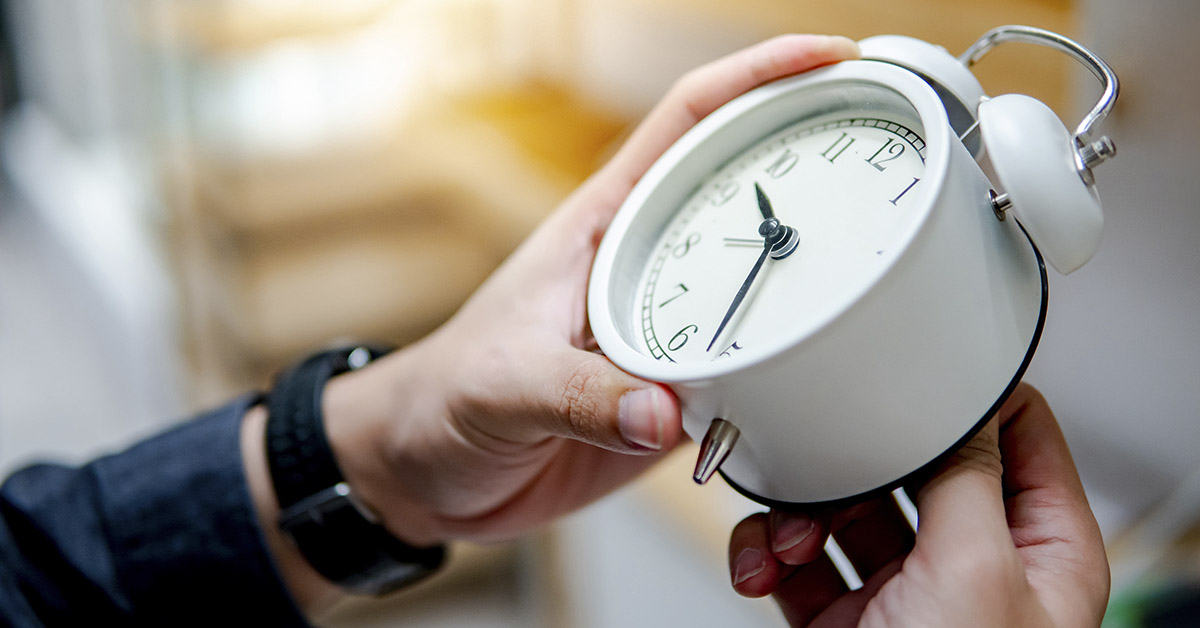There’s a lot of debate about whether or not we should change our clocks each Fall and Spring. Some people say it’s better to change the clocks to enjoy more daylight, while others argue that it’s messing with our health. The latter of these groups is advocating that, for our health, we stick to standard time. They want us to stop switching bi-annually and petition the government to make that happen.
Some Scientists Say It’s Time To Put An End To Daylight Savings Time
For a long time now, much of the world has been switching the clocks twice annually. As we come into winter, we “fall back” one hour, and as we approach the summer months we “spring ahead” one hour. Daylight Savings Time started as a way to capitalize on sunshine hours, particularly back when most of us were farmers. With modern society, electricity, and technology, however, this is no longer really necessary. (1)
Now, many people question why to change at all. Not only can it be a nuisance, but question all those supposed health problems it causes. Some even say that it increases the risk of some serious conditions, such as heart attack.
Is Daylight Savings Time Bad For Our Health?
Is changing our clocks really bad for us? Well, according to neurologist Dr. Pedram Navab, yes! He says that switching to Daylight Savings Time is hazardous to our health. He is advocating for us to stay on standard time. Dr. Navab points out that there are many studies showing how this shift affects our bodies in negative ways, and he wants people to be aware of how it affects them personally: “We are so tired of this switch.”
“The Senate has it backwards,” says Dr. Navab. “The natural daily cycle of light and darkness is really the most powerful timing cue that we have to synchronize our body clock.”
The Sunshine Protection Act
The government is apparently considering stopping switching. However, they are considering switching permanently to Daylight Savings Time, not Standard Time. They are calling it the “Sunshine Protection Act.” Their reason for this is that more light in the evening “extends” how much daylight we can enjoy. When it stays lighter out for longer, people are more likely to go out. The more people go out, the more money they spend. This, in turn, stimulates the economy.
Read: Eating for Better Sleep: 6 Foods High in Melatonin
Is Standard Time Better For Our Health?
Some researchers say, however, that permanently switching to Daylight Savings Time is not the way to go. First of all, they say that the switch to Daylight Savings Time creates a “social jetlag“. This is where people who work late into the night have trouble sleeping because they’re in “daytime mode”. Others report an uptick in health problems such as heart attacks and teen sleep deprivation each time we change the clocks. (2)
Dr. Navab says that the problem with Daylight Savings Time is that it means we don’t get as much morning light. While evening light may benefit the economy, it isn’t good for our health. He says we do better with the morning light to help wake us up and feel refreshed and then evening darkness to help us feel sleepy and go to bed at a good time.
Potential Health Problems From Daylight Savings Time
There are many potential risks from switching to Daylight Savings time. These include heart attacks and serious health issues, sleep problems in children, and increased traffic accidents. It is thought that this is because it disrupts the body’s internal clock by manipulating when we receive light-dark cues. (3, 4)
The potential health problems from Daylight Savings Time are not limited to adults. Children who are already struggling with sleep issues may have a harder time adjusting to the time change. It is thought that this is because their internal clocks are still developing and they rely more heavily on light-dark cues rather than clocks or watches. In addition to sleep issues, children can experience irritability and difficulty concentrating during the days following DST.
The effects that DST has on traffic accidents are still being studied. It is known that there are more crashes during the first few days after clocks are set forward than there are in the fall when they are set back. This is often attributed to the fact that people are still adjusting to the new time and they are not fully awake until later in the day. The number of crashes, however, has been found to decline over time following the spring change and increase after fall clocks are set back.
The Bottom Line
Some people say that the effects of changing the clocks are not that big of a deal and that the economic benefits outweigh those risks. Others say the exact opposite. From there, the debate is whether or not we stick with Standard Time, or if we permanently change to Daylight Savings Time. For now, these are all just petitions and lobbies to the government. We will have to wait and see what is decided.
Keep Reading: Woman makes it her mission to teach people how to make healthy food from Dollar Tree ingredients
Sources
- “Changing our clocks is a health hazard. Just ask a sleep doctor.” NPR. Allison Aubrey. March 11, 2023.
- “‘Social jetlag’: How daylight saving time can impact our health.” Global News. Saba Aziz. November 7, 2021.
- “How daylight saving time poses a host of health concerns, according to a neurologist.” PBS. Beth Ann Malow. March 11, 2023.
- “Why daylight saving time is unhealthy – a neurologist explains.” The Conversation. Beth Ann Malow. March 10, 2022.

